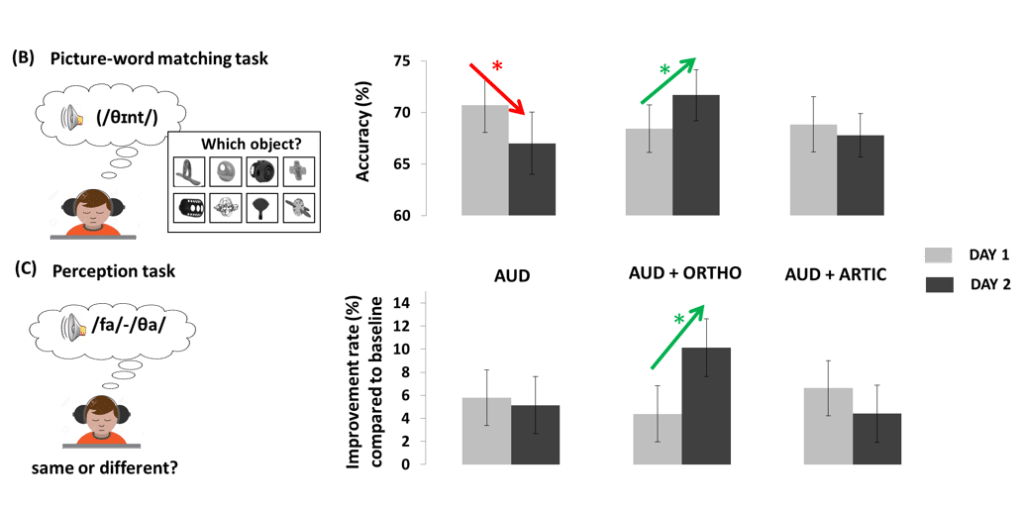Some native speakers of French have difficulty distinguishing the English /θ/-/f/ phonemic contrast (e.g. three vs. free). Could articulatory gestures or word spellings help them to learn new English words containing these confusable sounds?

(A) Using a picture-word matching paradigm, three learning methods were compared. AUD: auditory forms of new words were presented alone; AUD+ORTHO: auditory forms were presented with their spellings; AUD+ARTIC: auditory forms were presented with their corresponding articulatory gestures.

When simultaneously presented with speech, both visual cues showed an immediate benefit by allowing participants to better dissociate and learn new minimal-pair words beginning with /θ/ or /f/ (e.g. /θɪnt/ vs. /fɪnt). However, only the AUD+ORTHO learning led to a residual, long term benefit at both lexical and prelexical levels.
(B) Participants in this learning group showed a significant increase of performance in the picture-word matching task measured the day after the learning session (Day2), suggesting the consolidation of the new lexical knowledge after one night’s sleep.
(C) This consolidated lexical knowledge also had a top-down influence, leading to enhanced perceptual ability by reinforcing the distinct phonological categories of the /θ-/f/ contrast.
Pattamadilok et al. (in press). Journal of Experimental Psychology: Learning, Memory, and Cognition
